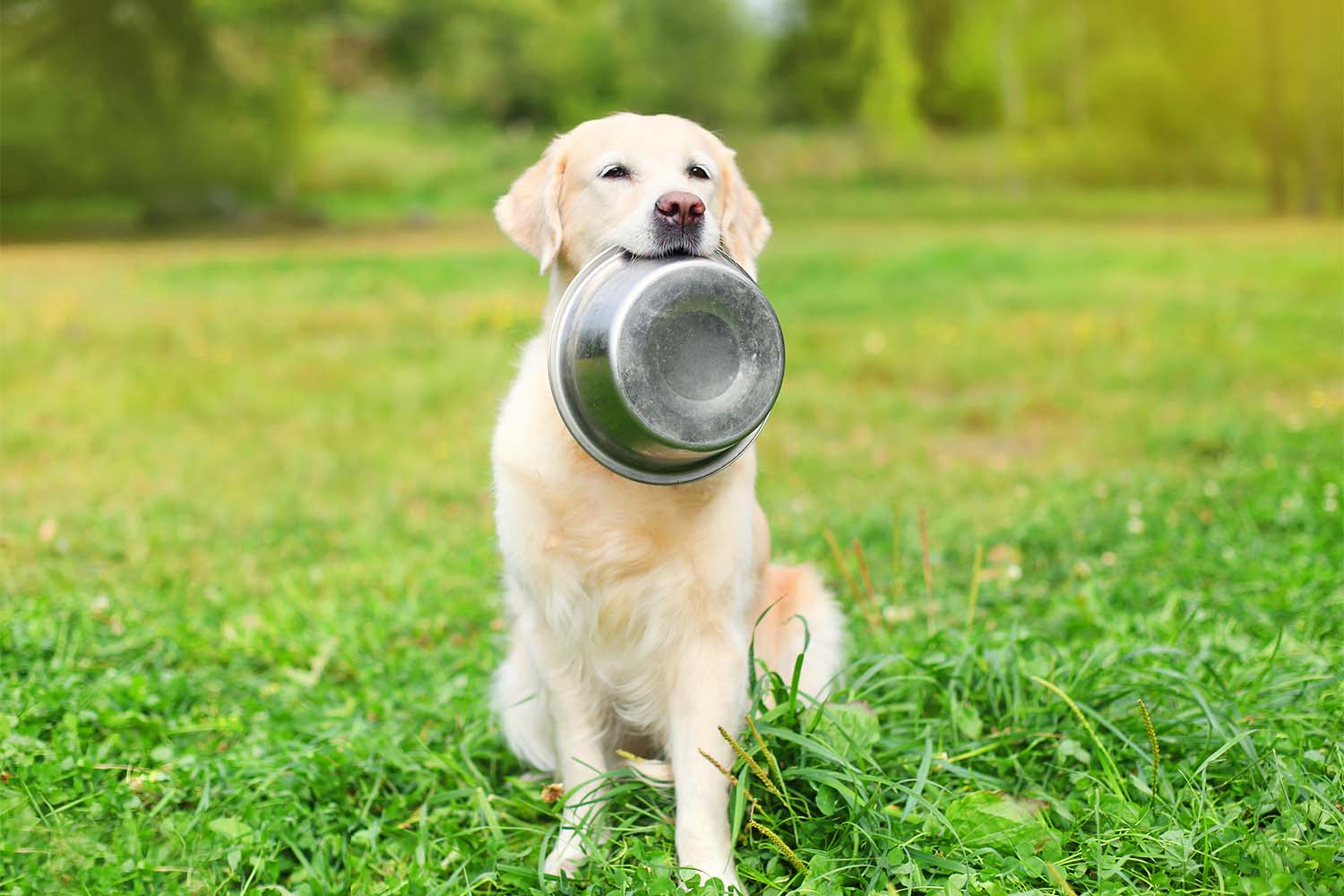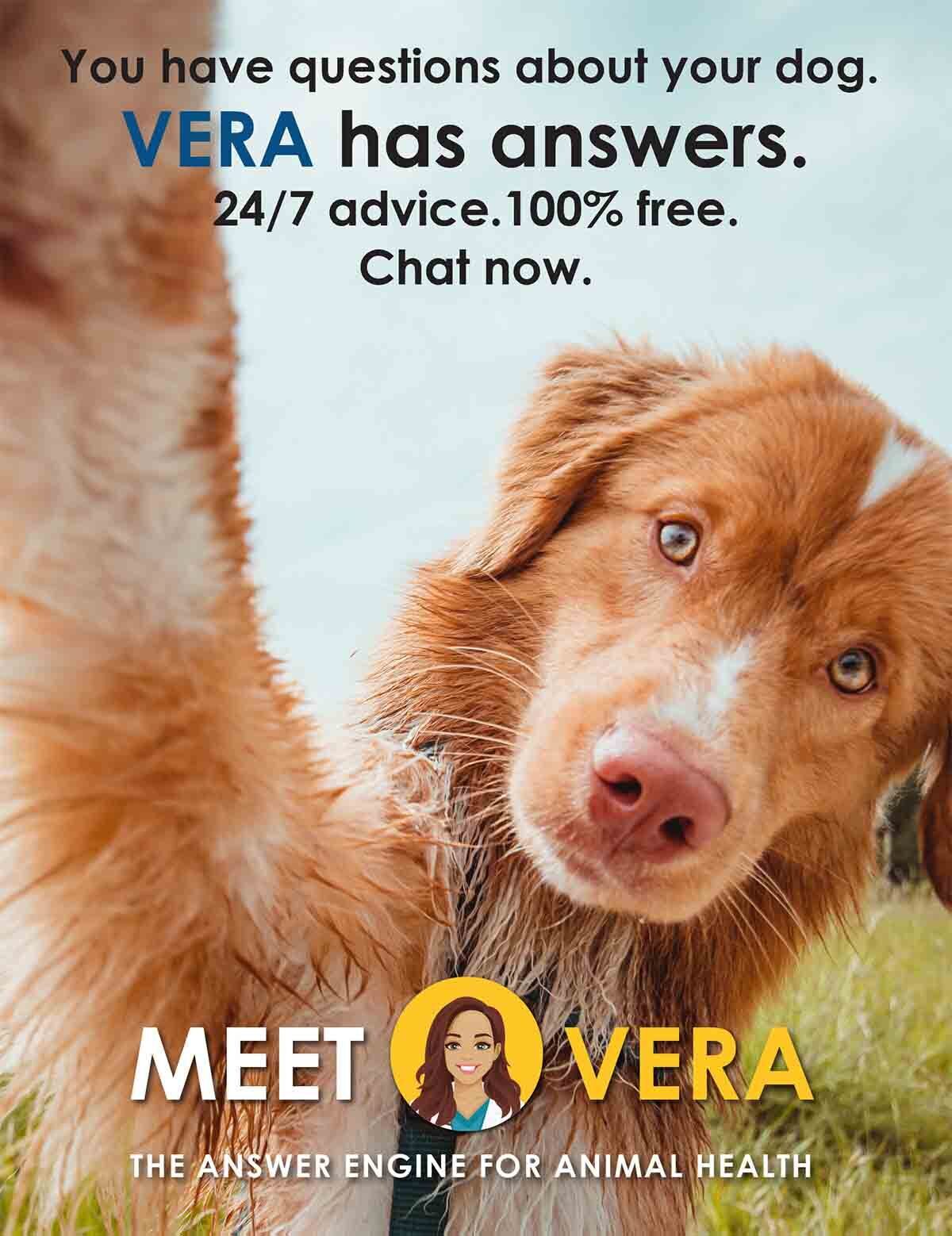Just like people, our dogs can experience the occasional bout of tummy troubles. When we have an upset stomach, we just want to lay down and keep to ourselves until the feeling passes. Our dogs can definitely feel the same. Instead of your dog’s ever-wagging tail, they are clearly not feeling well and may make a rush to the door to get outside to use the bathroom.
You may be wondering why your dog has made the mad dash. Once you see them use the bathroom, you will completely understand why when you see runny or loose stools in your backyard (hopefully!). Even if your poor buddy couldn’t quite make it outside, you know they need some extra care from their human parents.
What Causes Diarrhea in Dogs?
Often, diarrhea can start when your dog eats something that doesn’t agree with them. You may be familiar with this if you have a shenanigan-loving dog who got into the trash can and ate some particularly smelly leftovers from a few days ago.
Feeding your dog table scraps that are too heavy or rich can also cause gastrointestinal distress. Another cause of diarrhea in dogs is if you quickly switch them to a new food. The sudden change can cause their digestive tract to be less than happy.
Of course, diarrhea can be a symptom of something else lurking in your dog’s system. If your dog ate a foreign object, they might experience a blockage which can then cause diarrhea. Viral and bacterial infections can also be a cause, as well as intestinal parasites like roundworms or hookworms.
Other serious health issues that might explain your dog’s stool include giardia, parvovirus, or even kidney disease. Your DVM will be able to confirm a diagnosis.
Allergies and Dog Health
One potential answer behind canine chronic diarrhea is the type of dog food. Your dog could possibly have food allergies to some protein sources or filler types in regular foods. A food intolerance could be the underlying cause behind your pup’s disrupted bowel movements, and your vet can run allergy tests to confirm.
When Should I Take My Dog to the Vet?
Any time things are not normal for your dog is always a cause for concern, especially tummy troubles. If you see that your dog is experiencing diarrhea, but they are acting their usual self, this may be a case of just an occasional digestive upset that might work itself out.
However, if your dog experiences more than two days of diarrhea episodes, especially paired with any additional symptoms, then making an appointment with your dog’s veterinarian is a smart next step.
Additional symptoms to be on the lookout for include:
- Vomiting
- Signs of dehydration (dry nose, dry gums)
- Excessive Drooling
- Weakness
- Blood in stool
- Lack of appetite
If your dog does need treatment, your veterinarian will run the necessary tests and make their best judgment call. Likely next steps would be to monitor your dog, as well as give them fluids and electrolytes to help get their intestinal tract back on track.
Anytime you are concerned about your dog, a quick call to the veterinarian clinic can help soothe your nerves. Being a member of AskVet is also a great layer of support when you would like to speak with a veterinarian. Our 24/7 support can give you peace of mind when you need a quick question answered.
How Can I Help My Dog Feel Better?
For those mild cases of diarrhea caused by the odd food, a little TLC goes a long way. Gently pats and reassuring words comfort your dog and let them know that you will be close by. If the case is mild, it might solve itself over the next day or so.
It’s best to contact your dog’s veterinarian if you are concerned about your dog’s bout of diarrhea. Your vet may recommend one of the most common over-the-counter remedies: a bland diet. Keeping your dog’s diet as light and plain as possible may help soothe their stomach back to where it once was. This means no spices and minimal fat.
A bland diet allows your dog to have some food in their sensitive stomachs, but these foods are easily digestible and give your dog’s digestive system a well-needed break. You may also elect to withhold food for 12 to 24 hours (upon the direction of your vet) and then slowly introduce these bland foods to help your dog recover. It’s generally a good sign when your dog has an appetite.
Let’s take a look at some bland foods that will get your dog back to tippy tapping form in no time.
Chicken & Rice
Also, comfort food for humans, a little plain white rice with chicken, can be a comfort meal for your dog. The chicken should be plain with no seasoning and shredded or cut into small pieces. You can also mix in a dash of chicken broth with the rice as long as the broth does not have onions or garlic in it.
Luckily these days, you can usually find precooked rice and shredded chicken in the grocery store. Make sure you double-check the ingredient listing to ensure that no seasonings are used that may aggravate your dog’s digestive system.
Low-Fat Hamburger
Another bland protein is low-fat hamburger. This home remedy meal should be unseasoned and drained as much as possible of any lingering fat.
To ensure all the fat is gone, you can evenly spread the cooked hamburger on a plate with a few layers of paper towels while it cools. You can also mix the cooked hamburger with rice to give your dog something a tad more filling.
Broth
If your dog is wary about their regular diet at the moment, some broth can be the perfect segway to ensure that they are hydrated but are also ingesting some nutrients and a little flavor to entice your dog’s appetite.
Broth of all kinds can be easily found at the grocery store these days. Like the store-prepared rice and shredded chicken, check the ingredients label for any seasonings. If your dog doesn’t love broth, your vet could possibly recommend rice water.
Pumpkin/Sweet Potatoes
While we love pumpkin and sweet potato pies, these fillings are also great at helping to settle your pooch’s upset tummy. These two vegetables are easily digestible when they are prepared without seasonings. They also contain plenty of nutrients that could help your dog’s gastrointestinal tract feel nourished and ready to get back on schedule.
Pumpkin is sometimes used as a treatment for constipation.
Scrambled Eggs
Soft scrambled eggs are also a great source of protein that is easily digestible. We may sound like a broken record, but remember not to add any seasonings to the eggs, so you don’t further aggravate your dog’s stomach.
Road to Recovery
While it is always tough to see your furry best buddy not feeling well, rest assured that you have a team of experienced and knowledgeable veterinarians available to help 24/7.
While most cases of doggy diarrhea tend to resolve on their own with a little extra TLC, it’s important to always keep a watchful eye over your furbaby.
Join AskVet today, and know that you’ll have easy access to doggy care, whether it is a question about symptoms or just wanting to brush up on your pet health and wellness knowledge. We are only a short click away!
Sources:
What is the most common cause of diarrhea in dogs? | Ventura Emergency Vet
Diarrhea | Cornell University College of Veterinary Medicine
What Every Pet Owner Should Know About Food Allergies | Tufts University





